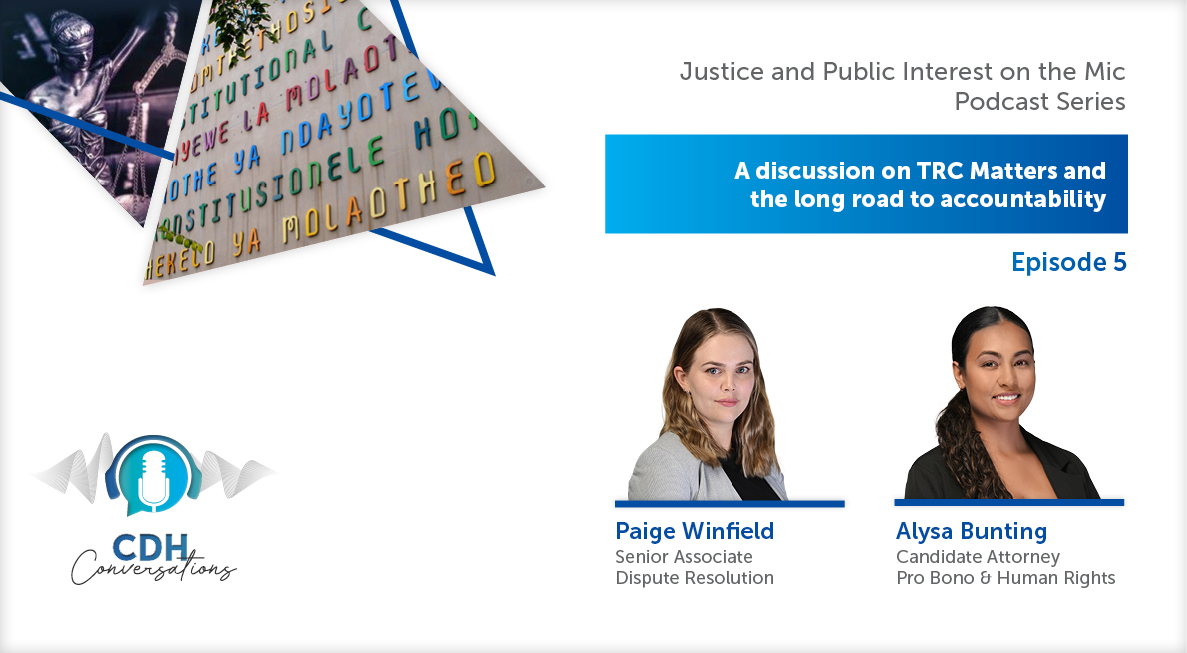Is non-verbal communication in the public interest and deserving of protection under the right to freedom of expression?
At a glance
- Our courts have held that attempts to restrain media houses from publishing must be done with caution and that a court must try and remain "as close to the preservation of the freedom of expression".
- In Els and Another v eMedia Investments (Pty) Ltd (25902/2021) [2024] ZAGPJHC 1164 (19 November 2024), the High Court was required to determine whether footage of Gregory Els, a businessman, walking away from an "ambushed interview" justified protection from being published on the Devi Show.
- In balancing the right to freedom of expression against the right to privacy, the court found that Els did not prove that he had a clear right that warranted protection.
In the case of Print Media South Africa and Another v Minister of Home Affairs and Another (CCT 113/11) [2012] ZACC 22, the Constitutional Court held that interdicting a media house before a publication has been made must be “approached with circumspection and should be permitted in narrow circumstances only”. In Midi Television (Pty) Limited v Directorate of Public Prosecutions (Western Cape) (SCA Case No. 100/06), the Supreme Court of Appeal (SCA) explained that a publication will be unlawful and thus susceptible to being prohibited only if “prejudice that the publication might cause…is demonstrable and substantial and there is a real risk that the prejudice will occur if publication takes place”.
In Midi Television the SCA went on to explain that the allegation that a publication is defamatory but yet to be declared unlawful by a court will not be considered prejudicial as “an award of damages is usually capable of vindicating the right to reputation if it is later found to have been infringed”.
In the recent case of Els and Another v eMedia Investments (Pty) Ltd (25902/2021) [2024] ZAGPJHC 1164 (19 November 2024), the High Court reiterated the principles above and was required to determine whether footage of Gregory Els, a businessman, walking away from an “ambushed interview” justified protection from being published on the Devi Show.
In this matter, Els was lured to a coffee shop under false pretences to advise on a sale of business transaction. Upon his arrival he was fronted by Devi Govender and asked a series of questions relating to allegations of misappropriating money. Els left the coffee shop, walked back to his car and then drove off. During this interaction, Els remained silent.
Els argued that the footage contained no information that concerned press freedom and, if aired, would be “performative and not informative”. Furthermore, he argued that there was no public interest in his business affairs as he was not a prominent public figure.
The court’s findings
In analysing the first argument, the court held that the fact that the footage may have contained no communication did not detract from its claim to expression. Whether the Devi Show should be interdicted from publishing the footage of Els had to be considered in the context of the overall report. The court held that Els walking away was a form of non-verbal communication.
In analysing the second argument, the court held that the allegations of impropriety made against Els were not trivial. The allegations related to misappropriating substantial sums of money. If the allegations were true, the public was at financial risk of dealing with Els’ firm. The court accordingly held that the allegations were indeed in the public interest.
In balancing the right to freedom of expression against the right to privacy, the court found that Els did not prove that he had a clear right that warranted protection. Furthermore, the court held that Els had an alternative remedy, which was a claim for damages flowing from an invasion of privacy. Accordingly, the requirements of an interdict were not met.
In conclusion, our courts have taken a very strict approach in protecting knowledge that affects the public, and upholding transparency and accountability. As such, even non-verbal communication that plays a part in informing the public of issues that may affect it will be protected by a court of law
The information and material published on this website is provided for general purposes only and does not constitute legal advice. We make every effort to ensure that the content is updated regularly and to offer the most current and accurate information. Please consult one of our lawyers on any specific legal problem or matter. We accept no responsibility for any loss or damage, whether direct or consequential, which may arise from reliance on the information contained in these pages. Please refer to our full terms and conditions. Copyright © 2025 Cliffe Dekker Hofmeyr. All rights reserved. For permission to reproduce an article or publication, please contact us cliffedekkerhofmeyr@cdhlegal.com.
Subscribe
We support our clients’ strategic and operational needs by offering innovative, integrated and high quality thought leadership. To stay up to date on the latest legal developments that may potentially impact your business, subscribe to our alerts, seminar and webinar invitations.
Subscribe



